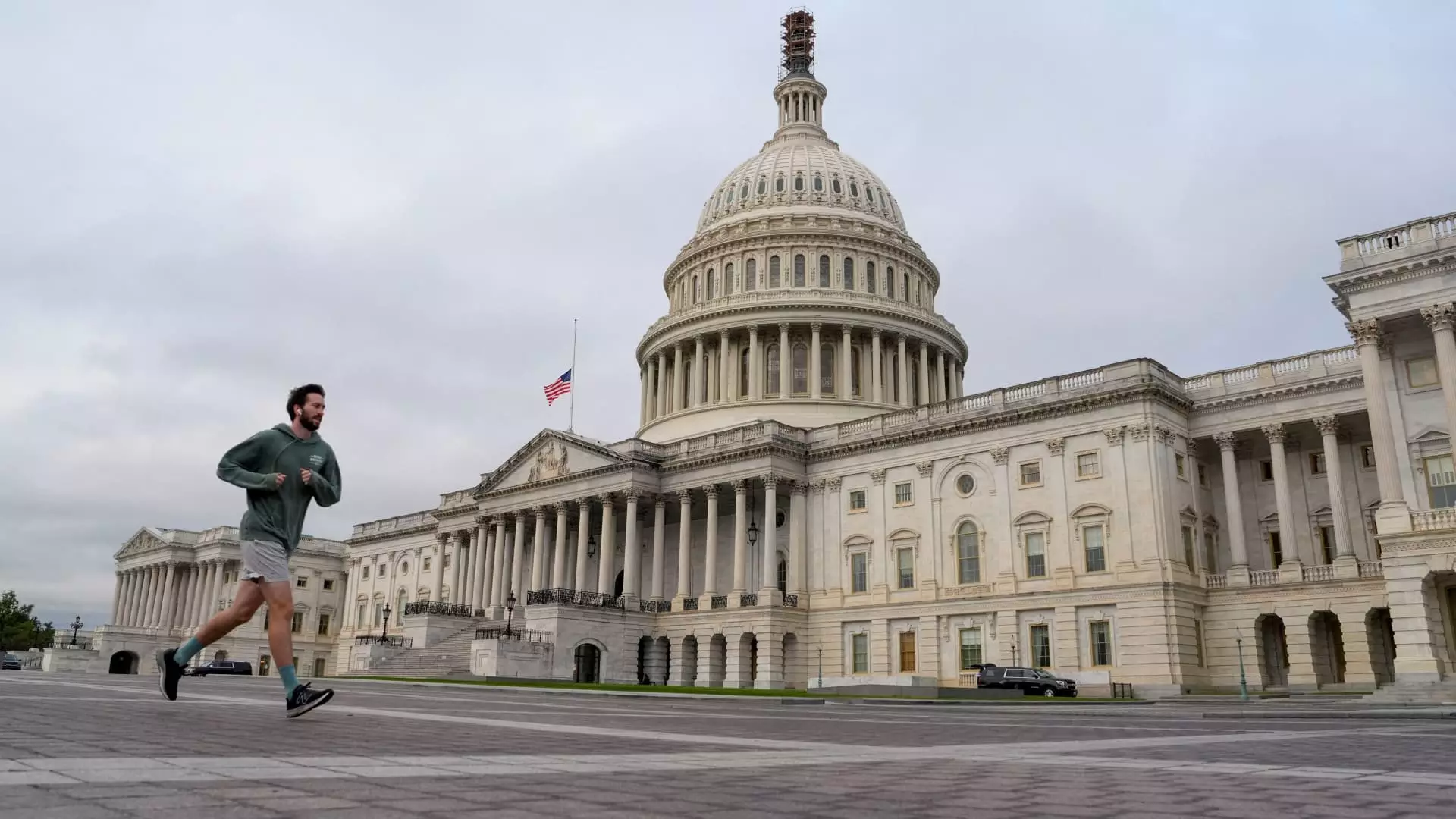Congressional leaders have reached a groundbreaking deal, amounting to $1.59 trillion in top-line spending, in an effort to prevent a potential government shutdown. The agreement outlines a budget for the 2024 fiscal year, with $886 billion allocated for military spending and $704 billion for non-defense spending. Republican House Speaker Mike Johnson of Louisiana has expressed his satisfaction with the negotiated concessions, as they allow for the timely completion of the twelve annual appropriations bills. However, it is important to note that while this deal provides a path towards resolving funding concerns, the possibility of a shutdown remains due to ongoing disputes over critical policy matters.
Senate Majority Leader Chuck Schumer (D-N.Y.) and House Minority Leader Hakeem Jeffries (D-N.Y.) emphasized the significance of this deal in a joint letter, highlighting its role in addressing key challenges faced by the nation. They believe that by securing this framework agreement, it becomes possible to safeguard the investments made in President Biden’s legislative accomplishments and ensure the well-being of hardworking American families. It is clear that the deal aims to strike a balance between meeting conservative objectives and retaining the benefits achieved through Democratic policies.
Although the spending levels outlined in the deal may not fully satisfy all parties involved, it represents a step forward in the process. Johnson acknowledges that this budget may not achieve the level of cuts that some had hoped for, but it enables the prioritization of funding towards conservative objectives and policy riders included in the House FY24 bills. As part of the negotiation process, concessions were made, including a $10-billion cut to IRS mandatory funding under the Inflation Reduction Act and a reduction of $6.1 billion from the “COVID-era slush funds.” These compromises will play a critical role in garnering support from both sides of the aisle.
This agreement comes at a crucial time for Republican House Speaker Mike Johnson, who is facing his first major test in governing as speaker. During the previous year, the GOP-controlled House passed a mere 27 bills that were enacted into law, marking a historically unproductive rate for the 118th Congress. Johnson’s task is further complicated by the fact that the GOP majority has shrunk, leaving the margin to a single vote. Therefore, any spending deal moving forward will require Democratic support. The influence of hardliners within the Republican caucus, who are likely to oppose any deal that lacks significant cuts, makes it nearly impossible for House Republicans to pass spending bills independently.
President Joe Biden has expressed his approval of the deal and the progress it signifies in averting a government shutdown. However, he has called on congressional Republicans to fulfill their basic responsibility of funding critical domestic and national security priorities, including his supplemental request. It is imperative that Republicans avoid threatening a government shutdown and work towards a productive resolution.
The $1.59 trillion spending deal announced by congressional leaders provides hope for avoiding a government shutdown. As the deadline approaches, negotiations have yielded essential concessions to accommodate the priorities of various parties involved. However, challenges lie ahead as both Republicans and Democrats continue to clash over important policy matters. It will be a test of Speaker Mike Johnson’s ability to navigate these obstacles and build consensus in a divided Congress. The support of President Biden is crucial in ensuring that the spending deal is approved and that the necessary funding is allocated to key domestic and national security priorities. Ultimately, the success of this deal rests on the ability of lawmakers to prioritize the needs of the American people over partisan politics.


Leave a Reply